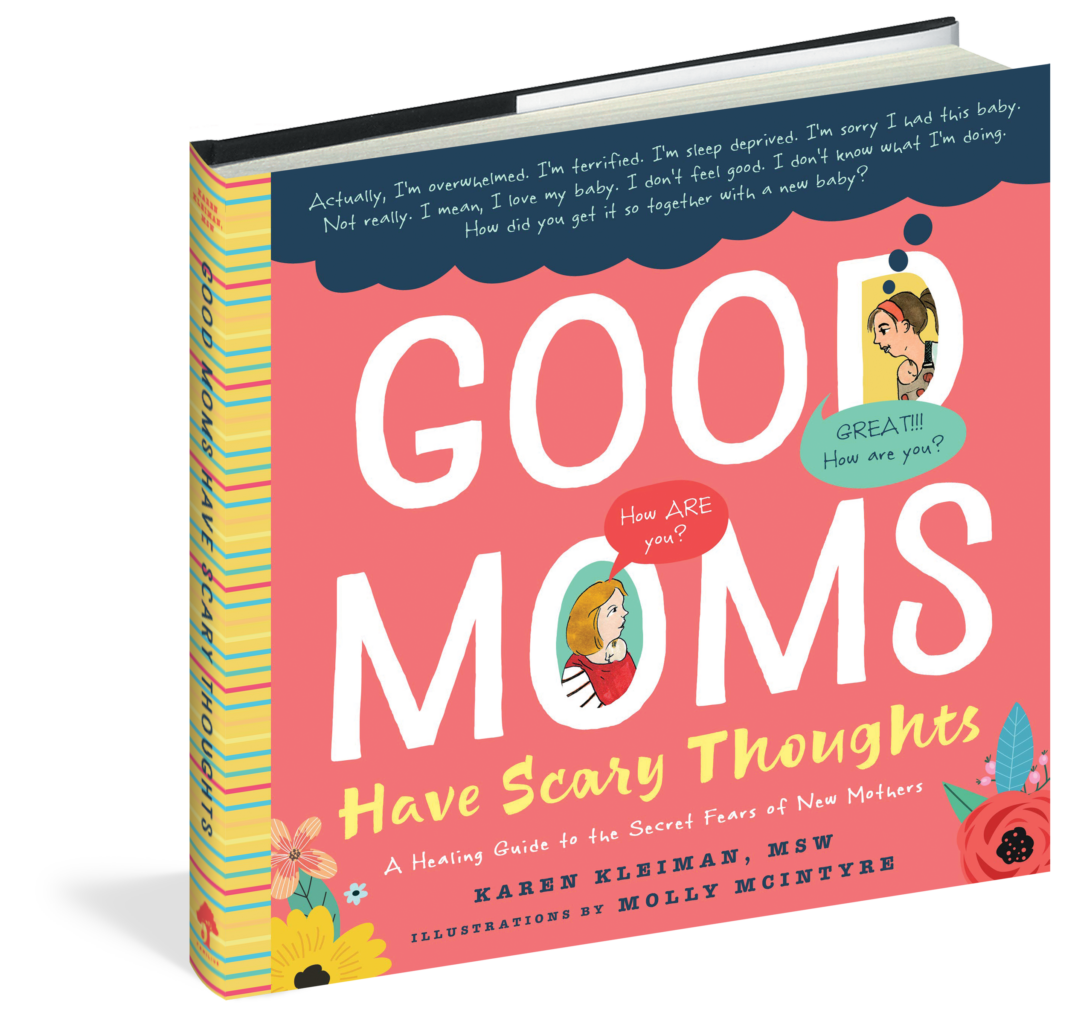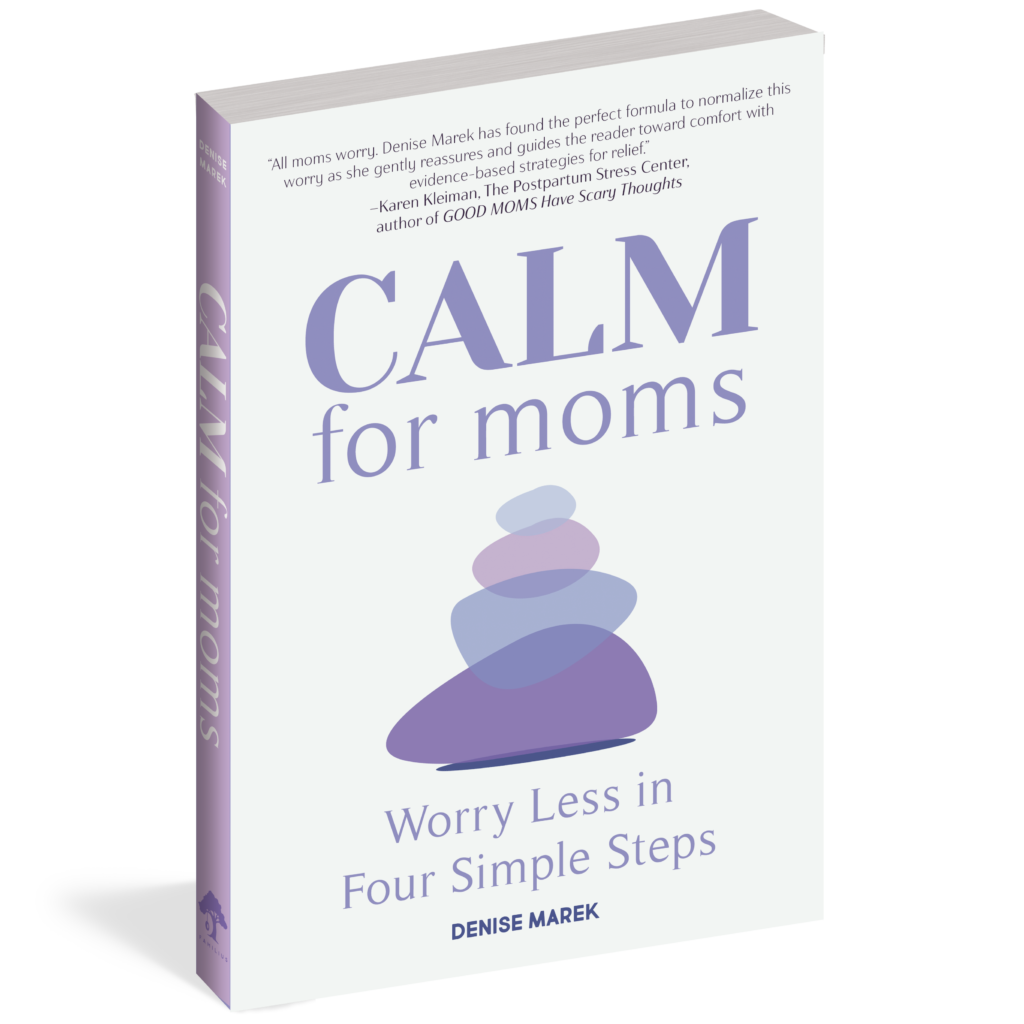
5 Most Common Intrusive Thoughts Mothers Experience Postpartum
The postpartum experience comes with many new thoughts, some exciting and some scary, and these are the five most common types of intrusive thoughts.
After giving birth to a new baby, a mother’s thoughts might sound like this:
What if I drop him? What if I snap and hurt my baby? Mothering is so hard—I don’t know if I really want to do this anymore. Gosh, I’m so terrible for thinking that!
Many mothers experience a range of intrusive thoughts postpartum. These thoughts are unwanted, distressing ideas that surface without warning and leave anxiety and guilt in their wake. And although these thoughts are common, mothers hide them in a secret place of shame, afraid to speak, making mothers feel isolated in their experiences and leading to postpartum depression.
Understanding these five most common thoughts and identifying them in daily life is a crucial step toward feeling better:
1. Harm-Related Thoughts
- Fear of accidentally harming the baby, such as dropping the baby or the baby falling out of the crib.
- Worries about the baby choking, suffocating, or being harmed in sleep.
- Concerns about causing intentional harm, despite having no desire to do so.
2. Illness and Cleanliness
- Anxiety about the baby contracting illnesses or infections.
- Obsessions about cleanliness and hygiene, leading to excessive cleaning or sterilizing.
3. Safety
- Worries about environmental dangers, such as accidents at home or during outings.
- Fear of someone else (e.g., another person, pet) harming the baby.
4. Self-Doubt and Inadequacy
- Thoughts about being an inadequate mother or failing to care properly for the baby.
- Fear of making mistakes in childcare routines, feeding, or sleeping practices.
5. Catastrophic Thoughts
- Imagining worst-case scenarios, like sudden infant death syndrome (SIDS) or severe accidents.
- Fear that something terrible will happen when the baby is out of sight.
Managing Postpartum Intrusive Thoughts
Overcoming intrusive thoughts can be a difficult process, but managing them begins with a combination of self-care strategies, therapeutic interventions, and support systems:
Practice Mindfulness and Acceptance
Mindfulness helps in observing thoughts without judgment. Instead of trying to suppress intrusive thoughts, acknowledge their presence and let them pass naturally.
Mindfulness Techniques: Engage in mindful breathing exercises, meditation, or yoga. These practices can help center your mind and reduce the intensity of intrusive thoughts.
Acceptance: Understand that intrusive thoughts are common and do not define your character or abilities as a mother. Accepting that these thoughts are a normal part of the postpartum experience can reduce their emotional impact.
Try Cognitive Behavioral Therapy (CBT)
CBT is an effective therapeutic approach for managing intrusive thoughts by changing negative thinking patterns.
Thought Records: Write down the intrusive thoughts and evaluate them objectively. Challenge irrational beliefs and replace them with more balanced perspectives.
Cognitive Restructuring: Work with a therapist to identify and modify unhelpful thoughts and behaviors. This can help in developing healthier thinking patterns.
Engage in Positive Activities
Distract yourself with activities that make you feel happy and fulfilled. Keeping your mind occupied can reduce the frequency and intensity of intrusive thoughts.
Physical Exercise: Regular physical activity can improve mood and reduce anxiety. Activities like walking, swimming, or yoga can be particularly beneficial.
Creative Outlets: Pursue hobbies such as painting, writing, or playing music. Creative activities provide a healthy distraction and an emotional release.
Social Interaction: Spend time with supportive friends and family. Socializing can provide comfort and reduce feelings of isolation.
Seek Professional Support
If intrusive thoughts become overwhelming, seeking help from a mental health professional is crucial.
Therapy: Therapists specializing in postpartum issues can provide tailored strategies, such as cognitive-behavioral therapy (CBT) and mindfulness-based cognitive therapy (MBCT), to manage intrusive thoughts.
Medication: In some cases, medication may be prescribed to manage symptoms of anxiety or depression associated with intrusive thoughts. This is often helpful, but it requires the support of your healthcare providers.
Build a Support System
Having a strong support network can make a significant difference in managing intrusive thoughts.
Support Groups: Join postpartum support groups, either in person or online, to share experiences and gain insights from other mothers facing similar challenges.
Open Communication: Talk openly with your partner, family, or close friends about your feelings. Sharing your experiences can help reduce the burden and make you feel less alone.
Self-Compassion and Patience
Be kind to yourself and recognize that dealing with intrusive thoughts takes time.
Self-Compassion: Treat yourself with the same kindness and understanding you would offer to a friend. Acknowledge your efforts and progress, no matter how small.
Patience: Understand that overcoming intrusive thoughts is a gradual process. Be patient with yourself and celebrate incremental improvements.
Discover More Ways to Handle Postpartum Intrusive Thoughts

Good Moms Have Scary Thoughts

CALM for Moms

Mothers of the Village
Shaelyn Topolovec earned a BA in editing and publishing from BYU, worked on several online publications, and joined the Familius family. Shae is currently an editor and copywriter who lives in California’s Central Valley.
